You may not know his name, but you definitely know his work. Composer and music producer ELLIOT WHEELER has a unique ability to bring eclectic and diverse musical personalities and genres together as one cohesive vision, in addition to creating his own musical works and recordings. Needless to say, that explains the magic of the collaborative partnership between Elliott Wheeler and visionary director Baz Luhrmann. As Wheeler does with music, Luhrmann does with his era-defying and genre-melding musicals like “Moulin Rouge!” and “The Great Gatsby”, the latter on which Wheeler served as composer and Executive Music Producer.
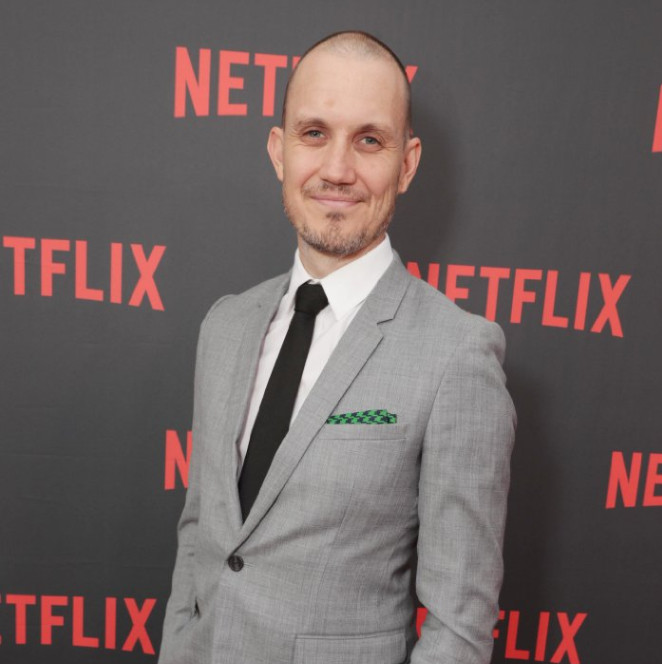
Crossing musical boundaries once again, Wheeler reteams with Luhrmann for the Netflix series THE GET DOWN. Now airing its second season with a third in waiting, THE GET DOWN focuses on the transitory years of the disco-ending 70’s and the emergence of Brooklyn-based punk and hip-hop. From the iconic Bronx tenements to the SoHo art scene, from CBGB to Studio 54, and even the monied business world of Manhattan, THE GET DOWN is the story of a group of kids in a decaying and dying world who give birth to the future of music, and the future of the Bronx.
Not only does Wheeler strike a storytelling balance with the hit music of artists like Grandmaster Flash, Rahiem of the Furious Five, Curtis Blow, ABBA, The Bee Gees and even some Kander and Ebb from “Cabaret”, but then he composes an original score and original songs with such deftness as to make one second guess where they heard that song before. The weave of the music and individual songs and stylings is seamless.
I had a chance to speak with ELLIOTT WHEELER in this exclusive interview in which we talked about the music of THE GET DOWN.
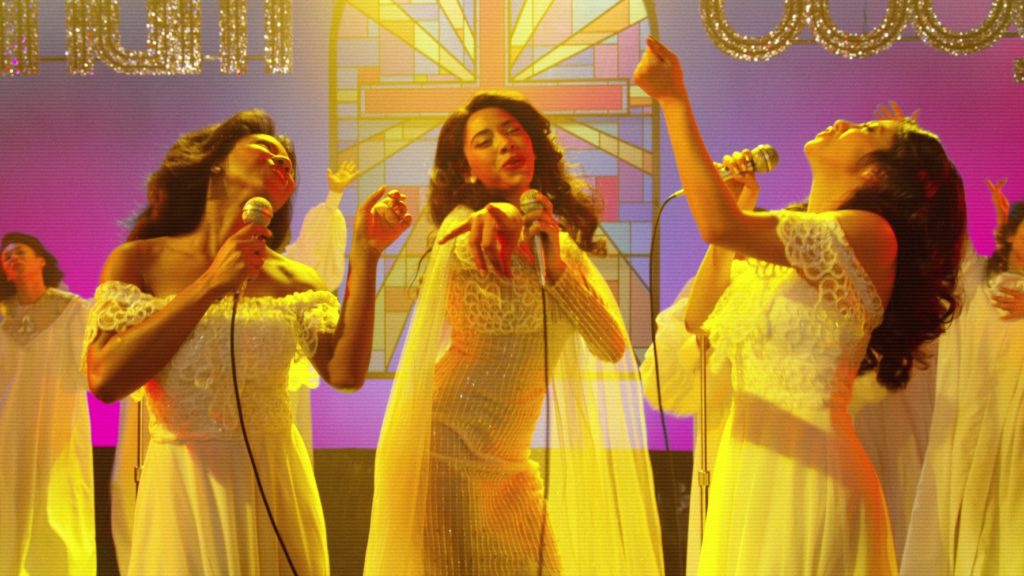
With the possible exception of James Gunn, no filmmaker today mixes story and music the way Baz Luhrmann does. We’ve seen it on the big screen with films like “Moulin Rouge!” and “The Great Gatsby”, and now we get to see it with THE GET DOWN. And what you have done in joining Baz for this new Netflix adventure by developing the musical palette and composing original music, while in your capacity as an executive music producer also working with established hits and known songs of the era, 1977-1978, results in an absolutely brilliant meld. Absolutely brilliant.
Thank you so much, Debbie. That speaks a lot to the very collaborative nature that Baz has in the style that he works, always, but particularly on this show. One of the mantras that Baz has was he wanted music to be so interwoven into the storyline that if you took the musical numbers out, the whole story should just, felt like it should fall apart. It meant that we got to work, from the very, very beginning, with our wonderful choreographers, our writing team, our editors. Even in the research stage, we were all working very much as one, and feeding different ideas into the script, and I would go to the choreographers and say, “What about this?” They would come back and say, “It’s working really great, but what about this track?” It really was an incredibly unique creative experience, and I think that’s the only way that you can get, I think, something that does meld all of those different elements together, so seamlessly. It’s an amazing gift that Baz has, that he’s able to pull together a creative process like that.
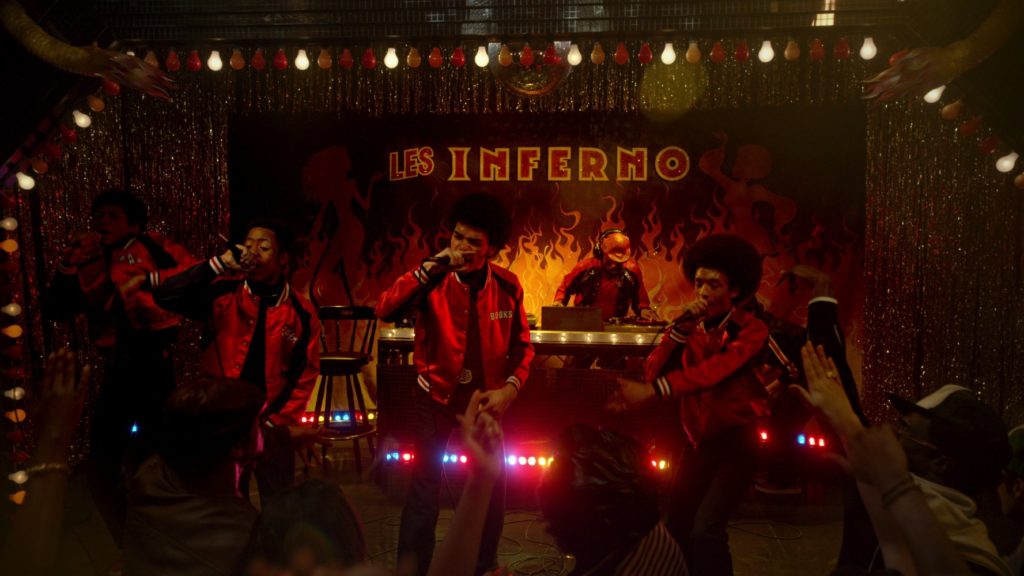
It’s very true what you say because as you were talking, I’m reflecting back on the episodes, all of which I have watched, and I think of the tonal shift in Episode 3 with Mylene’s character. You pull out any of those numbers – you pull out the Gospel number or you pull out a high kicking disco number, and the story just doesn’t work. There’s this gaping whole.
Yeah, absolutely. It was an extremely fun thing to be able to work with as well, having both original score, and like you were saying, the original masters, and new compositions, and being able to try those together. One of the things, I think, in particular in this show that we do play with a lot is this notion of a musical weave. You can see it in things like the “Set Me Free” number. Also, in Episode 6, the power, what we call the “power sequence”, when Shaolin is being forced by Annie to shoot Wolf, and Books is with Mr. Gunns, and Jackie is with Leslie Lesgold.
It’s a technique that Baz uses a lot. It’s sort of used a lot in opera as well. It’s where you have three convergent storylines that are all happening at one time. Using music to combine them, you’re able to make a broader statement about the internal themes that are happening within those individual storylines and pull them together to have a macro story almost. It’s incredibly exciting to do on a creative level, because again, it does require all of those different elements to work hand in hand. I think when we were able to do it, and spent the time to pull that off, it’s an incredible creative feeling to see it come together like that at the end, and I could make perhaps a bigger comment, that if you could just have the linear stories happening in their own time.
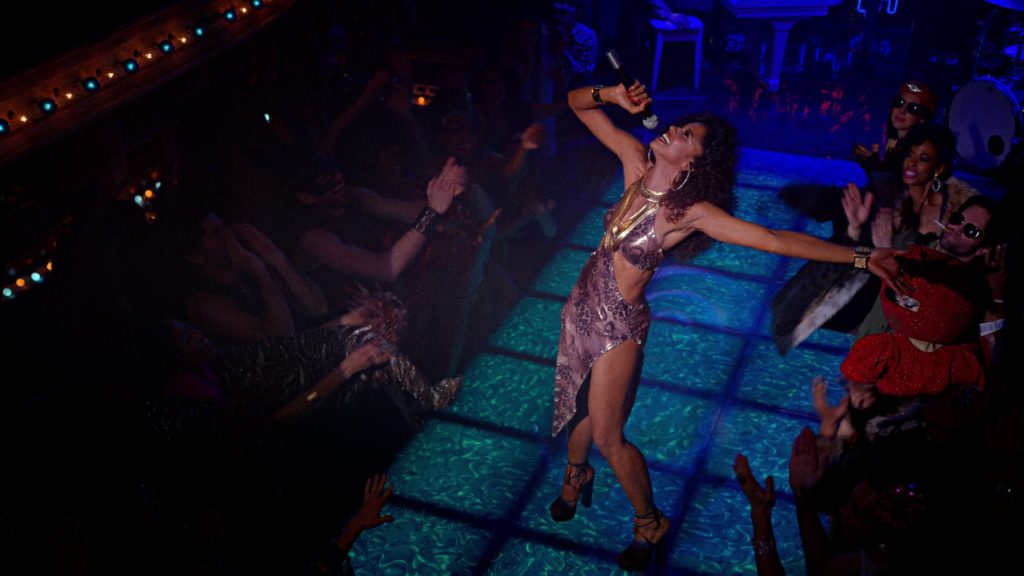
You definitely keep the audience engaged and on their toes, because with the three concurrent storylines, as we’re going back and forth between them, the music is a thread. It keeps us aware of where we are and who the characters are. We’ll hear Abba’s “Rich Man”, and we’ll hear the Bee Gees “Stayin’ Alive”, but then we’ll jump into some ‘Cabaret”. But each thing speaks to a different discipline, and different character. It’s almost like with a film score, where there’s a theme for each person, like a Max Steiner with “Scarlett’s Theme” or “Tara’s Theme”. It’s identified by the kind of music, and I am in love with what you’ve put together.
Thank you so much. That is the wonderful thing about being able to work over such a long time period. You do have time to develop all of those different themes. The interesting thing about working in this particular period and working with the collaborators that we worked with – Grandmaster Flash, and Rahiem from the Furious 5, and Curtis Blow – they really were drumming into us just how ubiquitous they were in terms of the music that they were sampling, and that they were searching out. When we go up and see the Afrika Bambaataa character, he talks a lot about there being no prejudice in terms of the music choices. It felt really like I was trying to take that aesthetic and apply that across that entire creative process in terms of the different style that we were able to use and blend together it really was trying to use, whatever we could find that would help tell the story in the best possible way.
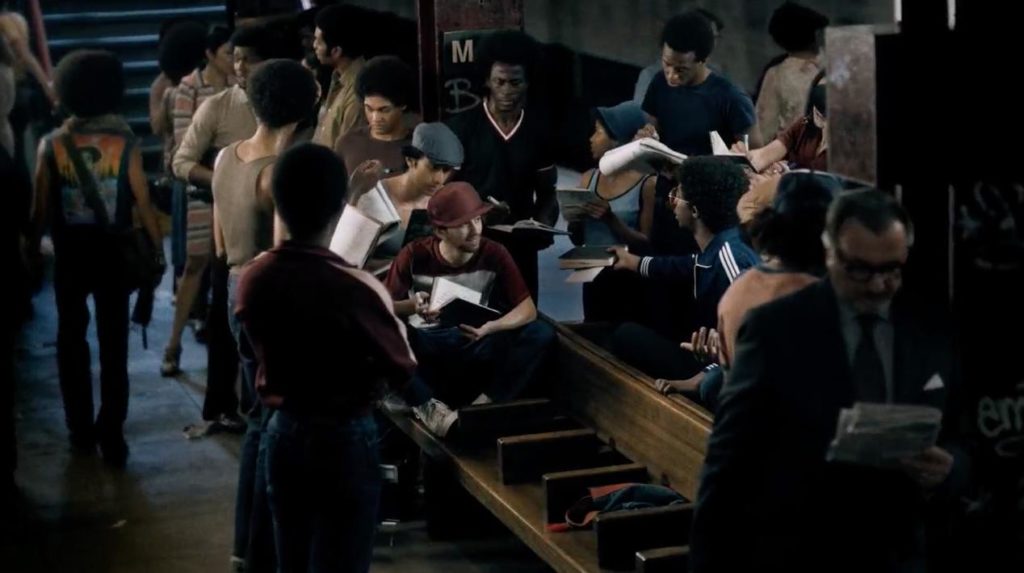
As I’m listening to you now, and I see by the sixth episode what you’re bringing in, you’ve got Dee Dee Ramone popping up, so of course, we know there’s the CBGB flavor. For me, I lived this whole transition. Watching THE GET DOWN is part of the soundtrack of my life in high school and college. I used to take the train from Philadelphia up to CBGB in its heyday and saw The Ramones. So for me, the ever-changing music scene is very well represented and interwoven. To watch this musically unfold is just an absolute thrill. I’m curious though, Elliott, because you have original compositions in here, they are so fluid and they are so in keeping with the time, I was having to double check my own mind and go, “Wait a minute, wasn’t that a song from. . .?” But it wasn’t, it was something that you wrote originally.
That’s wonderful. One of the things that we felt so keenly as we were setting out on this journey is, and was, the incredible responsibility that we had to people like yourself who experienced this music as such an integral part of their lives. Particularly when you’re talking about not just the disco and the new wave of punk stuff, but in the south Bronx, where it is the birth of this art form called “hip hop” that went on to spawn this billion dollar industry, in this one very particular part of the world, and looking at the forces that made that possible. We felt so keenly that we had to get that absolutely right, and part of that was being able to speak to people that were there, and just being as meticulous as we could about the research.
It was an incredible education to get to be able to delve in to that sort of detail and spend the time. And also to have the support to be able to record a live orchestra for every episode and work with incredible musicians of New York in New York studios, like members of the Dap Kings and their friends; to be able to actually go in and record the style of score in the way that it would have been recorded in the 70’s. That was a very important part of our process; to make sure that our actual production techniques were reflecting the styles of music that were being done back then whether it was hip hop or slow score in the style of Lalo Schifrin or Isaac Hayes or Barry Goldsmith or doing a disco track, trying to use the exact same techniques, and even in the same studios that the disco tracks had been recorded in back there.
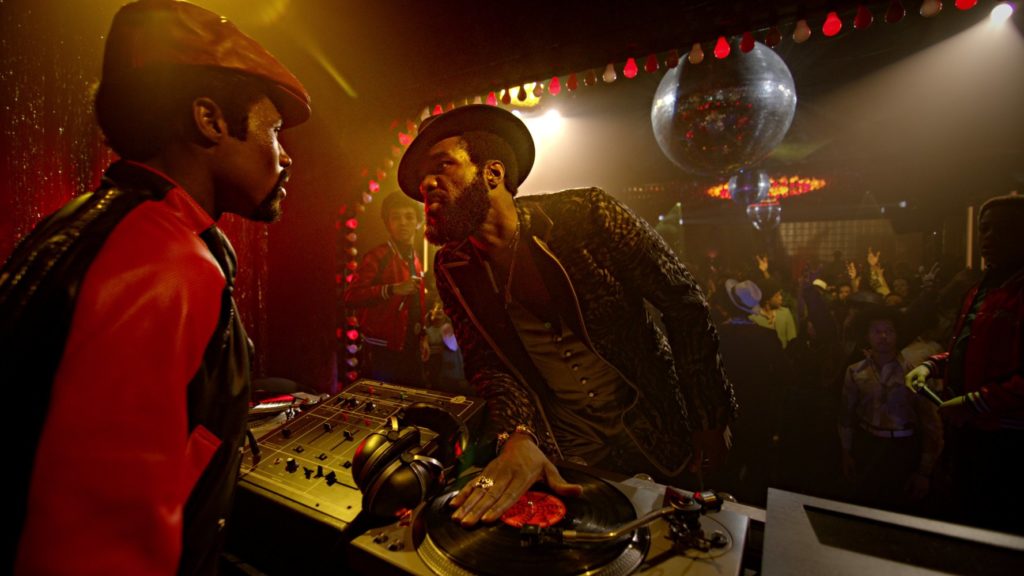
Another big element, whenever you’re dealing with music and especially performance pieces, is picking songs for your talent as well, within their vocal range. Have you encountered any difficulties as the music producer, as the executive music producer, in finding songs appropriate for the respective talent?
No, I wouldn’t say problems. I mean that’s just one of the parts of the job. Working with our wonderful music supervisor Stephanie Diaz-Matos, and her incredible team, we’re obviously working with a lot of external artists, but we were able to have a very clear line of communication when we were asking for submissions as well. I was lucky enough to work with our wonderful young cast from a very, very early part of the process. I was obviously there for the auditions. I knew their vocal range and their vocal talents at a very, very early stage. We were able to communicate that and it just becomes a part of the process. You work to the strengths that each of the performers has. They were all such incredibly hard working young adults that it was, if there were elements that we had to overcome, they were more than willing to put in the hard work to get there.
We had a wonderful – what we called “The Dojo” – which was like a boot camp for about two months before we actually started production. The reason Baz did that was because all these kids, even though they were wonderful performers, they’d obviously grown up on a very different diet of music and dance to the characters that they had to play. So for two months, they were in there learning how to do the Hustle, and learning how to do the Bus Stop, and how to beat boy in the style of 1977, and how to rap in the style of ‘77 with Curtis Blow and Grandmaster Flash, and Flash was teaching Mamoudou Athie who plays the young Grandmaster Flash, exactly how to portray him and his particular style of DJ’ing and his techniques. Similarly, with the vocal performances of Mylene and Regina and Stephanee Martin’s Yolanda, they had to learn, and sometimes unlearn, certain vocal techniques and ad-libs naturally as part of their normal singing. That reflects more of the 1977 style.
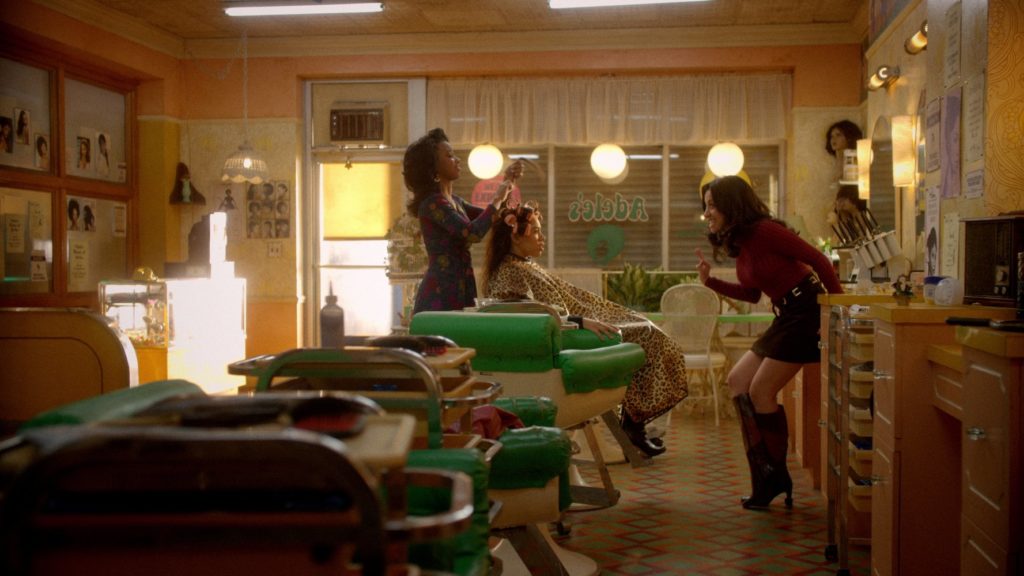
Because you had to create a musical framework within which the story can be told, does it allow for any fluidity or changes that take place from episode to episode, or is that pretty much locked down because of the nature, the construct of this show? Once you have a theme, is there “wiggle room” to change things out musically from episode to episode?
Absolutely! You have a basic core, obviously, and that’s the wonderful thing about thematic material, is that you should hopefully be able to recognize taking on different spots and different stripes. But absolutely, as the boys, as all of their stories become, they go off and become more young adults, and they start to move away from the euphoria of discovering these new forms of music, to actually dealing with the consequences of their decisions, absolutely I would say I tried to follow with the music, a lot of the musical choices became darker. Either in terms of the orchestration, or the addition of. For the music nerds out there, we actually did change the synths, different synths that we using from element to element, from ‘77 to ‘78. Very subtly, but they were in there. And obviously the musical choices that we were using were changing, in terms of the masters, from tracks that were available in ‘77, and then you get a whole new slew of stuff that’s available in ‘78, as the series moves on. Absolutely, that is, and one of the very exciting things about being able to develop those things, is to reflect all that’s happening in the character’s lives. Absolutely.
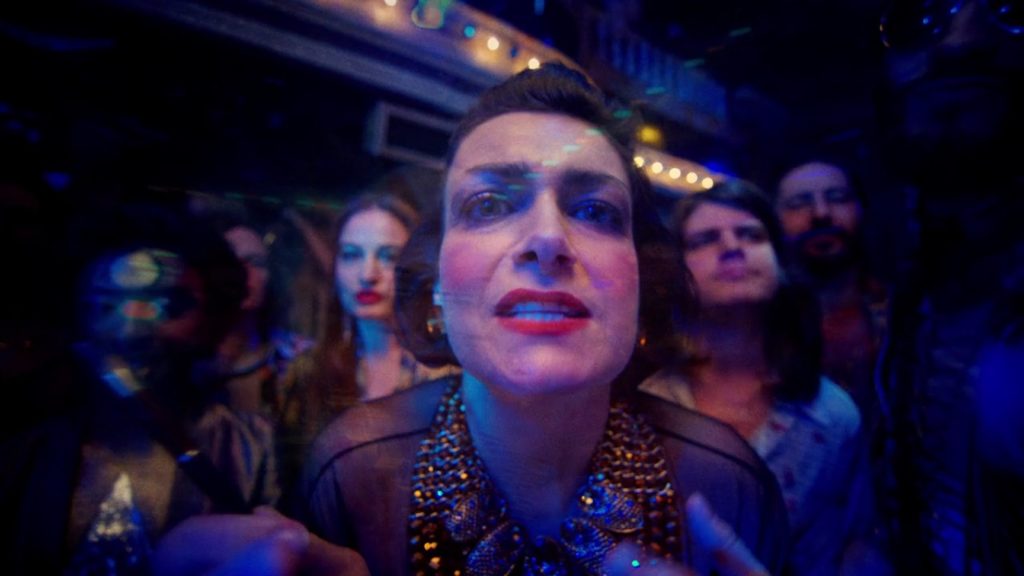
Elliott, this has been a real treat, a real pleasure for me. I can’t thank you enough. Your work is just beyond exemplary, and in true “Baz and Elliott” fashion.
Oh, thank you so much. That means a lot to hear you say that. Thank you so much for the very, very insightful and obviously very carefully thought out questions, as well. It’s wonderful to speak to somebody that’s obviously paying such close attention to the show.
Interview 4/21/2017 by debbie elias












